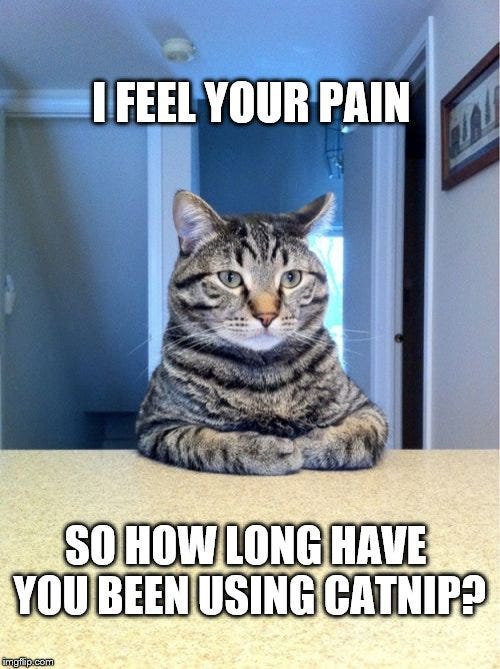Are writing coaches like therapists? Should they be?
Also: The Pitching Power Hour is back next week!
Hey there, pro members! Don’t forget that this upcoming Wednesday, March 5th, is the Pitching Power Hour. I’ll see you at 11:00 AM (EST) and can’t wait for us to work on our pitches today. Your Zoom link is at the bottom of the newsletter.
I’m always on the lookout for a good podcast and Bad Therapist hits all my criteria. It’s intriguing, it makes me think, and it does not leave me with a set of guilt-induced intentions I will never fulfill (I’m looking at you, fitness podcasts….) I’m enjoying many of their episodes but the one that really made me think was called The Life Coach School.
I won’t spoil the fun but the episode discusses both the “institution” (ha!) of the Life Coach School and the MLM-esque world of life coaching programs in general. One deliciously catty comment suggested that the reason life coaching programs are so popular is that they’re a way of getting all the perks of being a therapist without the degrees and the annoyance of regulatory oversight. Yikes! (If you’re a therapist and you’re reading this: THANK YOU for all those years of formal education.)
The reason this really struck a chord with me is that I’ve often heard writing coaching compared to both life coaching and to therapy. A popular writing coach I know of even has a section on their website that describes her collaborative approach as being a little bit like therapy and she’s probably not wrong to a certain degree. We all know that writing is much more than the story at hand. It’s about things like confidence, fear, and hope. It’s about trying to unravel that ever-complicated knot of stability, authenticity, autonomy.
But it’s also nothing like therapy and it’s probably not a great idea to compare the two. There are no consequences if I give someone a piece of bad advice, other than the fact that it’s a very poor business decision and a rightfully dissatisfied client could tell others not to hire me. An actual therapist could face consequences if their words had a negative impact on a client. I have the freedom to share my own story as it might help others with inspiration or insight, while an actual therapist enforces firm boundaries. Therapists cannot ignore self-destructive traits among their clients, whereas writing coaches are almost expected to. (Case in point: A therapist definitely isn’t going to let a casual mention of a drug binge slide but every writing coach has probably joked about Hemingway’s adage to write drunk and edit sober).
In other words, we’re kinda the same but we’re so not the same. A writing coach is not your therapist and a therapist probably shouldn’t be your writing coach. Working with a writing coach might be a little bit therapeutic but I’d like to think writing coaches are more akin to show shovellers or maybe show plow operators. We’re helping you clear your driveway and creative runway. We’re helping you with a challenging task so you feel the satisfaction of working in a team and making solid progress, as opposed to the chest-straining exhaustion of non-stop shoveling while more snow just falls around you. We’re the reassurance in a nasty storm, the comfort of knowing that you’re not alone among the slush and the wind.
If you need a little extra help clearing a creative path or digging out from a recent frigid blast, I’m here for you. (You can even see my services and book online here). In the meantime, I hope you too chuckle along to Bad Therapist!
Keep reading with a 7-day free trial
Subscribe to The Clothesline by Vanessa Chiasson to keep reading this post and get 7 days of free access to the full post archives.





